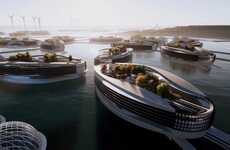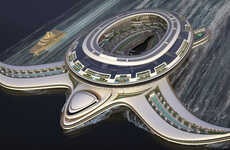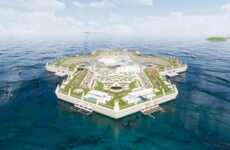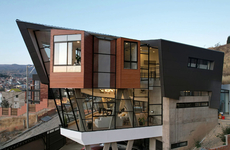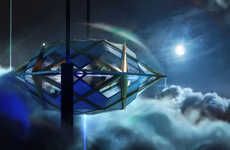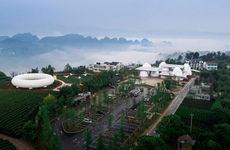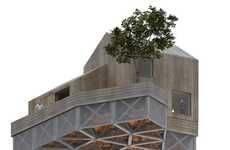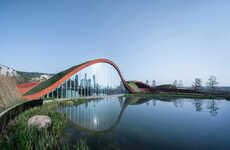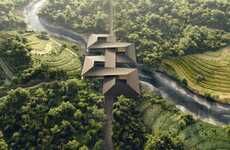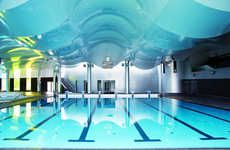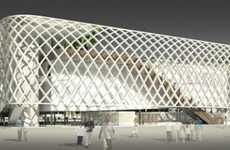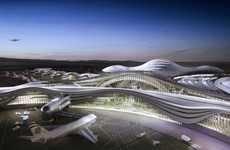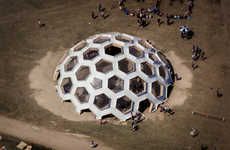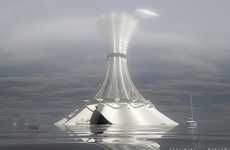
Wei Zhao's Heaven and Earth is Inspired by Shan Shui Painting
Meghan Young — March 7, 2012 — Eco
References: evolo.us & designbuzz
Heaven and Earth is a floating city concept inspired by traditional Shan Shui paintings, which literally translates to "Mountain Water" in English. It is appropriate then, that the surreal architectural concept appears to belong to that same family. Mountainous in its scope with only water beneath it, the Heaven and Earth floating city concept is stunning to behold.
Conceived by China-based designer Wei Zhao, the Heaven and Earth floating city addresses the increasing population and static space afforded by the planet. It would not only be home to humans and their constructs, but also to mountains, rivers, lakes, forests and animals. Using Maglev Technology to float in the air, Heaven and Earth is essentially a gigantic magnetic aircraft. It would also generate power for the city.
Conceived by China-based designer Wei Zhao, the Heaven and Earth floating city addresses the increasing population and static space afforded by the planet. It would not only be home to humans and their constructs, but also to mountains, rivers, lakes, forests and animals. Using Maglev Technology to float in the air, Heaven and Earth is essentially a gigantic magnetic aircraft. It would also generate power for the city.
Trend Themes
1. Floating Cities - The concept of floating cities is gaining traction as a solution to address increasing population and limited space on land.
2. Shan Shui Painting - The traditional Chinese art form of Shan Shui painting is inspiring architecture and design, resulting in unique and surreal concepts.
3. Maglev Technology - The use of Maglev technology in floating cities presents opportunities for innovative transportation and energy solutions.
Industry Implications
1. Architecture - Architects and designers can explore the possibilities of creating floating cities and incorporating Shan Shui-inspired concepts in their projects.
2. Urban Planning - Urban planners and policymakers can consider floating cities as a viable option to address population growth and urbanization challenges.
3. Transportation - The development of Maglev technology for floating cities can disrupt the transportation industry and lead to new advancements in sustainable travel.
5.8
Score
Popularity
Activity
Freshness


